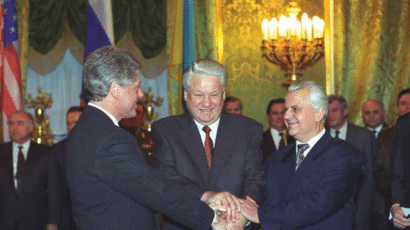Search results for Koch
Adnan Hezri、 Ashish Kothari 和我至少都同意一点:气候变化对人类构成了巨大威胁。但是很多人,包括我自己在内,都很难面对气候科学对他们提出的要求——很难想象和拥护要充分减少温室气体排放(而全世界穷人的基本需求都仍然满足)所必须做出的经济、消费模式和政治制度的急剧改变。 为什么这样想象行不通?Hezri 第二轮文章最后一段已提出了一个根本原因。 Hezri 写道,"经济去发展是个阻碍社会繁荣的极端环保主义目标"以及"环保主义者必须接受,生活是为了活下去。"Hezri认识到,必须降低碳排放——但根据他的架构,繁荣和经济增长都是不可侵犯的。任何威胁两者的东西都构成威胁,使生活不值得过下去。 现代人类已在地球上行走了约 20 万年。仅仅是在过去 200 年左右的时间里化石燃料才开始彻底改变工业生产。值得注意的是,在这样短暂的时间内,化石燃料已跟人类生活如此紧密地交织在一起,以至于许多人很难想象没有化石燃料的生活会怎样。石油行业(正如 雪城大学教授 Matthew Huber 详述)曾提醒美国人石油产品充满了他们的生活。业界一直试图在美国塑造倾向新自由主义价值观,如私有主义、个人主义和自由选择的文化政治。石油已成为人们对有家有车、企业家的生活方式,甚至是核心家庭的愿望的物质及能源基础。如今,假设没了石油和石油经济,一个神话的美国式、自己奋斗的人不可能获得他的成功和财富。石油工业已成功将反对无限制石油消费与反对人们所珍爱的国家理想等同了起来。不幸的是,这种关于美好生活的险恶观点并不局限于美国。在发展中国家,许多属于或期望属于中产阶层的人都已接受了这种进口而来的愿景。 为了充分应对气候变化及穷人使用能源的挑战,至关重要的是要认识到,注重自私、个人进步的新自由主义的生活理想造成了许多不利条件。这包括对地球和社会的破坏、孤独、不满和拼命竞争的环境。幸运的是——正如加州大学伯克利分校的心理学家 Dacher Keltner 的主张——人类的爱心、善良、同情心都是天生固有。对美好生活的更为健康的愿景——强调爱、社群、团结、同情和慷慨的愿景——在人类历史上已为众多文化所珍视。这些愿景和价值观必须加以滋养,赋以活力,并必须抗衡"适者生存"这一主导视角。 当然,要实现这点,说起来容易,做起来难。在发展中国家和发达国家一样 ,对于很多人来说,新自由主义经济和政治上深沉的重量使他们很难重新设想对生活的态度,相应地就很难追求新的理想。正因如此,如碳税等气候解决方案,必须伴随有安全网方案,解决弱势群体需要及恐惧。 人是社会化的存在,对同情心、连接感以及对比自身更伟大事物的归属感有着深刻的向往。通过在这种向往之上采取行动,人们可以发挥自己的同情心、创造力和聪明才智。这些品质能提供所需要的一切,哪怕是在资源有限的世界里,也能为人类开辟一条更健康的道路,爱护万物,并治愈地球。只有当人们的价值观、社群和经济体与自然和谐相处时,人类才会体会到有意义的生活带来的长久的满足感。
Empezar la vida de nuevo
Adnan Hezri, Ashish Kothari y yo estamos de acuerdo en por lo menos un punto: que el cambio climático representa una amenaza tremenda para la humanidad. Pero para muchas personas, entre las que me incluyo, es difícil enfrentarse a lo que el cambio climático les exige: es difícil imaginar y acoger los cambios radicales de … Continued
Conceiving life afresh
Adnan Hezri, Ashish Kothari, and I agree on at least one point: that climate change poses a massive threat to humanity. But many people, myself included, have difficulty facing up to what climate science demands of them—difficulty imagining and embracing the radical changes to economies, consumption patterns, and political systems that are necessary if emissions … Continued
AI and atoms: How artificial intelligence is revolutionizing nuclear material
There's a three-dimensional solution to manage the evolving dual-use concern of AI: advance states-centric monitoring and regulation, promote intellectual exchange between the non-proliferation sector and the AI industry, and encourage AI industrial contributions.
Why the atomic bombing of Hiroshima would be illegal today
The desire to avoid the US military casualties expected in the planned invasion of Japan, combined with a desire for vengeance against Emperor Hirohito and the Japanese, overwhelmed legal concerns and moral qualms about killing civilians on a massive scale in the attack on Hiroshima. Such a nuclear attack would be illegal today. It would violate three major requirements of the law of armed conflict.
How scientists can fight for science without losing trust
As the March for Science approaches, new research sheds light on how advocacy by scientists affects the way they are perceived.
The reality of France’s aggressive nuclear power push
"It's time to look to the French," New York Times columnist Roger Cohen wrote in January.
Why Putin’s betrayal of Ukraine could trigger nuclear proliferation
On June 1, 1996, Ukraine concluded its denuclearization process under the promises that Russia would respect its sovereignty and territorial integrity—only to be betrayed twenty-six years later. A former US ambassador to Ukraine reflects on how Russia's invasion could impact nuclear non-proliferation efforts.
Putin’s psychology and nuclear weapons: the fundamentalist mindset
Vladimir Putin’s recent threats to use nuclear weapons are grounded in a psychology that is paranoid and also millennialist—focused on an imagined future that will come only after the “good” have vanquished the evil “others.” In Putin’s worldview, the profound humiliation that he believes the West has inflicted on his sense of self, both an individual and as a member of the Russian people, is an intolerable injury that must be avenged.
The folly of a German Bomb
Facing a resurgent Russia and an ambivalent America, some German analysts are calling for homegrown nuclear weapons. That would be a mistake.
Scientists can be advocates and maintain scientific credibility
A new study finds that scientists don't lose credibility among the public when they advocate for policies relevant to their expertise.
Who can lead?
Human beings’ complex and problematic relationship with their environment is becoming only more complex and problematic. Indeed this roundtable, which began as a discussion about how to meet energy needs and development goals while also satisfying higher public environmental expectations, has evolved into a broader discussion of what human beings must do to reestablish a … Continued
Scientists and an atomic subcontinent
In India and Pakistan, leaders have rarely weighed the consequences of their actions. Instead, they have simply reacted to events and circumstances.
To change policy, win power
Two of the solutions most frequently offered for addressing the "energy trilemma" of energy security, environmental sustainability, and social equity are to decrease overall consumption and to reform political systems. In this Roundtable, Chuenchom Sangarasri Greacen and Ashish Kothari have in their own ways argued for these two approaches. But solving the "energy trilemma" will … Continued
Para cambiar la política, hay que ganar poder
Las dos soluciones más frecuentes para responder al "trilema energético" que comprende la seguridad energética, la sostenibilidad medioambiental y la equidad social, disminuirán el consumo total y creará una reforma de los sistemas políticos. En esta mesa redonda, Chuenchom Sangarasri Greacen y Ashish Kothari, cada uno a su manera, están a favor de estos dos … Continued
Fear and Loathing in Moscow: The Russian biological weapons program in 2022
By Robert PetersenOctober 5, 2022 On February 24, Russia launched a war of conquest against Ukraine after it had already illegally annexed Crimea in 2014 and waged war for eight years in the Donbas. The invasion was widely condemned, including by the United Nations General Assembly, with 141 states voting in favor of a resolution … Continued
In Germany, the energy transition continues
in the equivalent of a come-from-behind goal just before the final whistle, it looks like Germany did reach its carbon dioxide emissions target. According to a new analysis by the German energy think tank Agora Energiewende, it cut overall emissions by 42 percent from 1990 levels.
Why Germany won’t build its own nuclear weapons and remains skeptical of a Eurodeterrent
Aggressive Russian policies and the Trump administration’s transactional approach to alliances have put nuclear issues back on the agenda for European governments. Arguments for German acquisition of nuclear weapons have gained no traction among German decision makers, as this would require multiple costly and radical shifts of Berlin’s foreign and security policies.
To change policy, win power
要解决能源安全、环境可持续性及社会公平这个"能源三难"问题,两种最常被提出的解决方案就是减少总体消费和改革政治制度。在本次"圆桌讨论"中,Chuenchom Sangarasri Greacen 和 Ashish Kothari 都以各自的方式为这两种方法作出了论证。但要解决"能源三难",这两种方案独立开来解决问题,还远远不够。 呼吁降低消费往往忽视了很重要的一点——即经济活动与自然资源的使用并不总是同步的。以日本为例,1977 年至 1987 年间日本国内生产总值增加了 42%,但能源需求仅增长了 14%。但除此之外,过分关注家庭能源消费会推导出"个人行为是环境可持续性的关键"这一结论。在大多数发展中国家,这代表了一个乌托邦式的态度。例如,在许多发展中亚洲国家,日益壮大的中产阶级认为汽车和家用空调是强有力的地位象征。期望新近富裕起来的人们放弃这些他们高度重视的技术,必然会以失望告终。 个人想要并认为经济上合理的东西支配个人消费。只有政府政策才够强大,足以压倒这些力量。有可能通过政策重建消费模式,使其并不仅经济上合理,而且环境上也合理。但是,政府不太可能仅仅因为 Greacen 在第二轮文章中所提倡的"采取加强民主并增加透明度及问责的措施"而制定这样的政策。相反,环保运动必须争取更大的政治权力。 到目前为止,环保主义者已经打赢了许多战役,但却似乎正在这张战争中逐渐失利。他们已经成功地游说了数千起环境立法,但地球生态系统却在持续地迅速退化。造成这种情况的部分原因是环境运动的特点:组织结构薄弱、视野有限,并以循序渐进的方式来实现改变。如果环保主义要成为一股强大的政治力量,而非抗议运动,那就必须克服这些问题。 西欧绿党已在这个方向取得了一些进展,一些抗议运动演变成了有意义的政党。这些政党在德国、意大利、法国、比利时和芬兰等国家已成为执政联盟的一部分。2004 年时,拉脱维亚的总理就是环保人士。而另一方面,东亚地区本应是滋生环保政治的沃土,但在跟拥护经济增长支持繁荣的政党竞争时,绿色政党普遍未能赢得人心。但即使环保主义者真的获得了更大的主流政治力量,他们也必须保持警惕,不要被市场力量俘获。金钱与政治联盟将继续对地球构成危险,除非全世界共同坚定地拥护一个愿景,这个愿景中,生态可持续性与人类福祉的目标交会在一起。 不过说到底,我认为,经济去发展是个阻碍社会繁荣的极端环保主义目标。环保主义者必须接受,生活是为了活下去。
¿Quién será el líder?
La relación compleja y problemática entre los seres humanos y el medioambiente es cada vez más compleja y problemática. Por cierto, esta mesa redonda, que empezó como un análisis sobre cómo satisfacer las necesidades energéticas y las metas de desarrollo, mientras también se satisfacen mayores expectativas medioambientales ha dado lugar a una discusión más profunda … Continued









